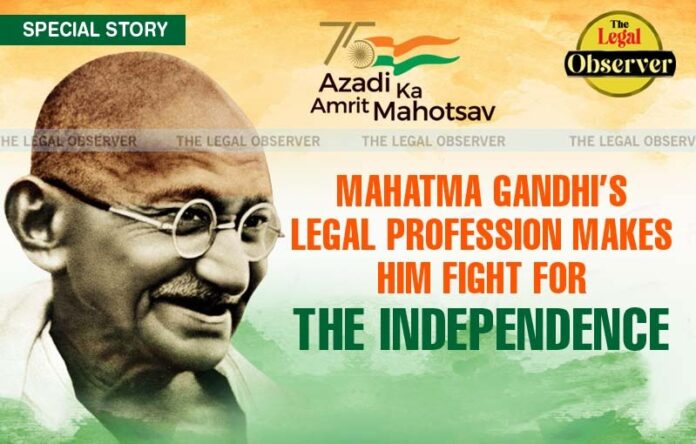Mahatma Gandhi was undisputedly the most important freedom fighter in India’s struggle for independence from British colonial rule, and was described by the Indians as the “Father of the Nation”. is widely recognized as an ardent believer in the philosophy of non-violence and truth, Gandhi was instrumental not only in India’s independence but also in South Africa, influencing similar movements around the world.
Not only has he inspired countless nationalist leaders in India (including former Indian Prime Minister Sri Lal Bahadur Shastri, who shares the same birthday as Gandhi), but Gandhi’s life, struggles and contributions are well documented around the world. It has inspired countless people inside. Today, his life, teachings and legacy continue to influence billions of people in many ways.
On June 10, 1891, Gandhi after passing the bar exam, was registered as a barrister in the High Court. Gandhi said, “It was easy to be called in, but difficult to practice in a bar. I had read the law, but I had never learned how to practice it. It is a statement that will be relevant to all lawyers for generations to come, as even the best law schools in India and abroad have been studying law for years.
Despite all that being said, students are ultimately unprepared for legal practice and its challenges. First, Gandhi began his training in Bombay, which lasted for six months.
Gandhi was a staunch supporter and had a reputation for being one of his most honest lawyers. His philosophy of truth influenced his legal practice and actions. He vowed never to make a false case or give hired witnesses.
He also ensured that all facts were disclosed and all errors brought to the attention of the court and all parties to the litigation. Thus, he always followed his belief in the value of ‘truth’ and later ‘it was not impossible to administer justice without compromising the truth.
There is a growing tendency to appeal to Gandhi in the Supreme Court of the 21st Century. One of Gandhi’s famous pleas was the Suomotu contempt case by the Supreme Court against Prashant Bhushan, a self-professed public interest. Both Bhushan and the Grand Court referred to Gandhi in their hearings and final judgments.
Gandhi never lost sight of the truth and non-violence that always guided his path. That is why we must always strive to discover Gandhi’s message of peace, truth and non-violence and connect it to our daily lives.






